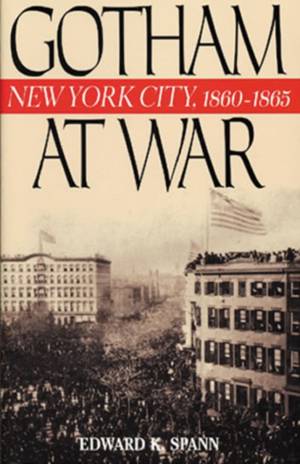
- Retrait gratuit dans votre magasin Club
- 7.000.000 titres dans notre catalogue
- Payer en toute sécurité
- Toujours un magasin près de chez vous
- Retrait gratuit dans votre magasin Club
- 7.000.0000 titres dans notre catalogue
- Payer en toute sécurité
- Toujours un magasin près de chez vous
Description
Yet, despite being a major Northern city, New York also had strong sympathy for the South. Parts of the city were strongly racist, hostile to the abolition of slavery and to any real freedom for black Americans. The hostility of many New Yorkers to the military draft culminated in one of the greatest of all urban upheavals, the draft riots of July 1863.
Edward K. Spann brings his experience as an urban historian to provide insights on both the varied ways in which the war affected the city and the ways in which the city's people and industry influenced the divided nation. This is the first book to assess the city's contributions to the Civil War.
Gotham at War examines the different sides of the city as some fought to sustain the Union while others opposed the war effort and sided with the South. This unique book will entertain all readers interested in the Civil War and New York City.
About the Author
Edward K. Spann is professor emeritus of history at Indiana State University. He is a specialist in nineteenth-century history and urban history. Spann has authored a number of books, including The New Metropolis: New York City 1840-1857 and Ideals and Politics: New York Intellectuals and Liberal Democracy, which was nominated for a Pulitzer Prize.
Spécifications
Parties prenantes
- Auteur(s) :
- Editeur:
Contenu
- Nombre de pages :
- 213
- Langue:
- Anglais
- Collection :
Caractéristiques
- EAN:
- 9780842050562
- Date de parution :
- 01-09-02
- Format:
- Livre relié
- Format numérique:
- Genaaid
- Dimensions :
- 165 mm x 231 mm
- Poids :
- 444 g

Les avis
Nous publions uniquement les avis qui respectent les conditions requises. Consultez nos conditions pour les avis.






